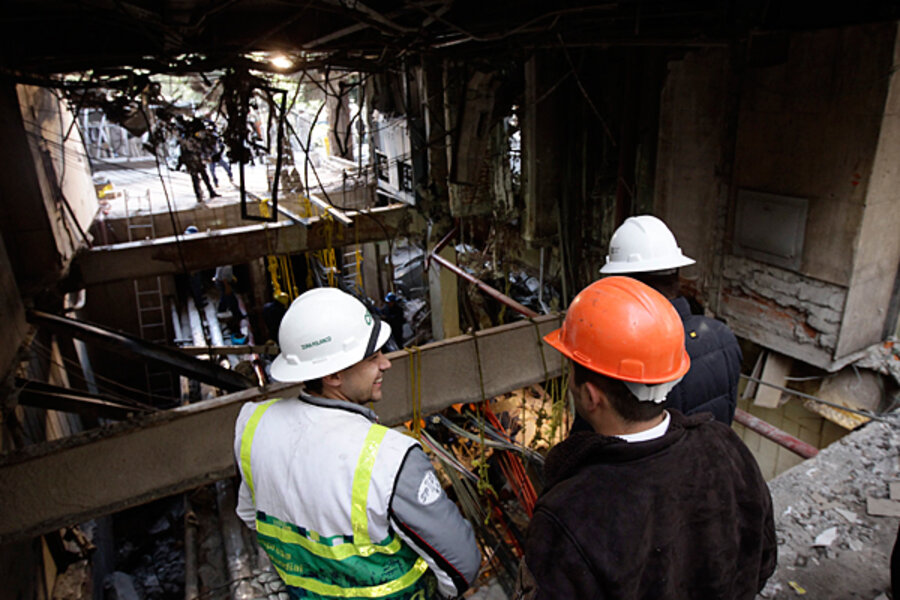Will blast at Mexico oil company shift opinions on privatization?
Loading...
| MEXICO CITY
A buildup of gas in the basement provoked the explosion that ripped through four floors of Mexico’s state-owned oil company, killing 37 people and injuring more than 100.
That’s the latest assessment of the cause of last Thursday’s tragedy at the 52-story tower housing the corporate offices of Petroleos Mexicanos, or Pemex, according to Attorney General Jesus Murillo Karam. A spark caused by maintenance workers ignited the gas, the source of which is not yet known, he said.
The explosion comes as Mexico gears up for a heated battle over the fate of Pemex, created when President Lázaro Cárdenas expropriated foreign oil companies and nationalized the industry in 1938. The company remains a powerful symbol of sovereignty, despite also possessing a reputation for corruption and graft.
President Enrique Peña Nieto wants to open the troubled company to private investment. Pemex suffers from multiple problems. It is saddled with an antiquated bureaucracy and declining production, has little flexibility to invest in its installations, and lacks the advanced technology needed to access hard-to-reach oil. The company’s dubious safety record will also likely be central to the debate.
“The image of a Pemex which is weak and in internal chaos, institutionally falling apart and physically falling apart – that aids those who are advocating radical change in the way Pemex is owned and operated,” says John Ackerman, a visiting scholar at American University in Washington, D.C., and editor-in-chief of the Mexican Law Review.
That said, he adds, “If people believe it’s a ploy to create the image of a weak Pemex, this could create a counter flow of opinion that would make it more difficult to make changes.”
Mexicans remain divided on the issue, although opinions are shifting. As recently as 2008, 76 percent of respondents in a survey by researcher center CIDE opposed privatization, according to Duncan Wood, director of the Woodrow Wilson International Center’s Mexico Institute.
“More recently opinion polls have suggested there has been a significant softening of those attitudes,” Mr. Wood says. “What all this really depends on is how ambitious the government wants to be.”
Speaking to the media Tuesday night, Mr. Murillo Karam, the attorney general, described the blast as “diffuse, slow, horizontal and perfectly defined,” characteristic of a gas explosion. He dismissed the possibility of a targeted attack, including a bomb.
Mexican media had been clamoring for an explanation after more than four days without information regarding possible causes. The information vacuum opened the door to speculation and sparked frustration with the government’s lack of transparency.
Among the issues that remain unresolved: Who, if anyone, is responsible. Murillo Karam indicated that investigations were ongoing.







